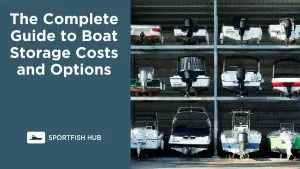Testing the compression on your outboard motor is an important way to check the overall health and performance of the engine and your boat. Here is a step-by-step guide on how to properly perform a compression test on an outboard boat motor.
Key Takeaways
- A compression test measures the pressure inside the engine cylinders to detect issues like worn piston rings or leaking head gaskets.
- Compression should be tested when the engine is warmed up to normal operating temperature.
- Remove all spark plugs and disable the ignition system before testing.
- Use a compression gauge kit with adapters to fit the spark plug holes.
- Crank the engine 4-5 revolutions and note the highest pressure reading on the gauge.
- Compare readings across cylinders – they should be within 10-15% of each other.
- Low compression can indicate worn rings, scored cylinders, faulty valves or head gaskets.
Why Test Compression Check an Outboard Engine?
Testing cylinder compression is one of the best ways to evaluate the overall mechanical condition of an outboard motor on a boat.
The test measures the pressure generated inside the cylinder as the piston moves up and down. Compression is what pushes the piston down to provide power.
Issues like worn piston rings, leaking head gaskets, scored cylinders or problems with valves will lower compression. A compression test can detect these problems before they lead to engine failure.
It’s recommended to test compression:
- When buying a used motor to check condition
- During routine maintenance as a performance benchmark
- When engine seems down on power
- When troubleshooting rough idle, hard starting or poor performance
How Does a Compression Test Work?
A compression tester gauge is connected to the spark plug hole to measure cylinder pressure.
As the piston travels upwards, the air/fuel mixture is compressed. The gauge reads this pressure, which should reach a consistent value in a healthy engine.
Lower readings indicate leakage and loss of compression past worn rings, blowby around pistons or issues with valves sealing properly.
Comparing readings between cylinders also shows if one cylinder is weaker. Consistent readings across cylinders are ideal.
Step-by-Step Compression Test Procedure
Follow this process to test compression on your outboard boat motor:
1. Warm Up the Motor
- Running the motor warms it up to normal operating temperature. This allows the engine parts to expand to operating size.
- Testing compression cold can give inaccurate low readings. Always test warmed up.
2. Remove the Spark Plugs
- Remove all spark plugs from the cylinders. This allows the engine to turn over without igniting.
- Label plug wires to keep track of cylinder locations.
3. Disable the Ignition
- Disconnect or ground all ignition coil wires to prevent accidental ignition.
4. Install the Compression Gauge
- Use the correct adapter and tighten the gauge firmly into the spark plug hole.
5. Open the Throttle
- Open the throttle fully to allow maximum air intake into the cylinder.
6. Crank the Engine
- Use starter or pull cord to crank engine through 4-5 revolutions. This allows reading to stabilize.
7. Note the Pressure Reading
- Highest reading is the cylinder’s compression. Allow gauge to reset between tests.
8. Repeat on all Cylinders
- Move gauge and repeat test on remaining cylinders.
Compression Testing 2-Stroke vs 4-Stroke Outboards
There are some differences in compression values and testing methods between 2-stroke and 4-stroke outboard motors:
- Compression values: 2-stroke engines typically show compression in the 90-110 psi range when properly running. 4-stroke engines normally see higher compression from 140-180 psi.
- Testing methods: 2-strokes only require a basic compression gauge test. 4-strokes should also get a cylinder leakdown test to check valve seals.
- Cranking method: 2-strokes are tested by pulling the starter rope. 4-strokes use the electric starter.
- Testing warm: Always test both types warmed up to normal operating temperature.
The same basic principles apply to both in terms of looking for consistency across cylinders. But the expected normal values differ between 2-stroke and 4-stroke engines. Consult your owner’s manual for the exact compression specifications.
Interpreting Compression Test Results
Compression readings vary between outboard types:
- 2-stroke engines: 90 psi to 110 psi range is preferred
- 4-stroke engines: 140 psi to 180 psi is optimal
- Consistency across cylinders is most important. Readings should be within 10-15% of each other.
Lower compression indicates loss of pressure:
- Drops below 90 psi on 2-strokes often mean worn rings
- All cylinders low point to head gasket failure
- One cylinder low indicates scored wall, faulty valve or bad piston
Always compare readings to factory specs for exact diagnostics.
Fixing Low Compression on an Outboard Motor
If low compression is identified, here are potential fixes:
- Decarbonizing using seafoam or engine cleaner to remove carbon deposits
- Replacing failed head gasket
- New piston rings to improve seal
- Reboring cylinders and fitting oversized pistons
- Full rebuild or replacement if engine is worn out
Catching issues early makes repairs less expensive before major damage occurs inside the engine.
Summary
Testing compression on your outboard using a compression gauge is simple and gives vital insights into engine condition.
Look for consistent readings in the normal psi range for the engine. Irregular or low results indicate faults needing attention before further wear and tear or breakdowns occur and you’re left without a boat.













